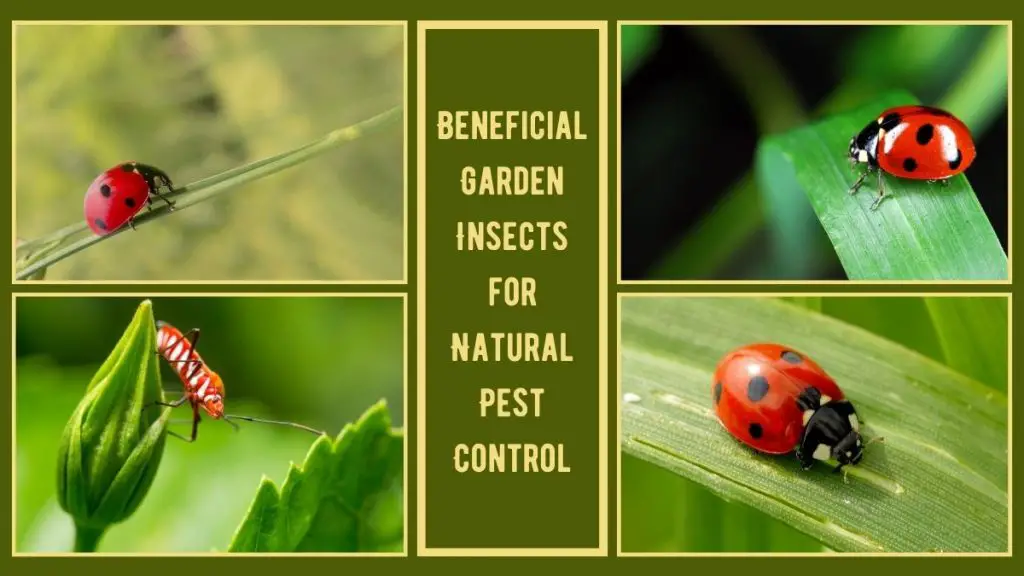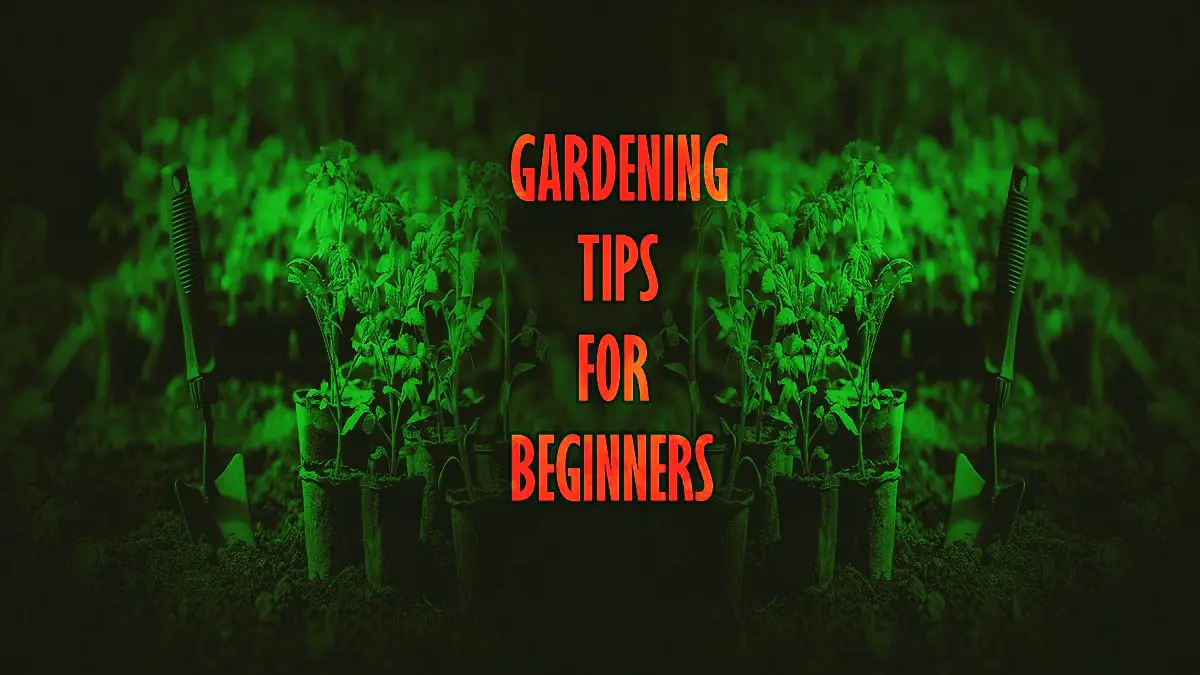Beneficial garden insects aid in pest control and pollination. They include ladybugs, bees, and lacewings. Here, we will talk about the beneficial garden insects that would be useful for natural pest control.
Gardens teem with life, much of which is essential to the ecosystem’s balance. Beneficial insects play critical roles by preying on pests that can damage plants and by assisting in pollination, ensuring diverse plant reproduction. Ladybugs feast on aphids, a common garden pest, while bees transfer pollen between flowers, vital for fruit and seed production.
Lacewings, another ally, consume a variety of insect pests, including mites and thrips. Attracting these helpful creatures can reduce the need for chemical pesticides, promoting a healthier and more sustainable garden environment. Gardeners can encourage the presence of these insects by planting native flora and avoiding the use of harmful chemicals. Hence, recognizing and fostering beneficial insects is key to a thriving garden ecosystem.
Related Article: The Top 10 Common Gardening Mistakes You Should Avoid
You may also read: Best Plants to Grow Under Trees – A Complete Guide
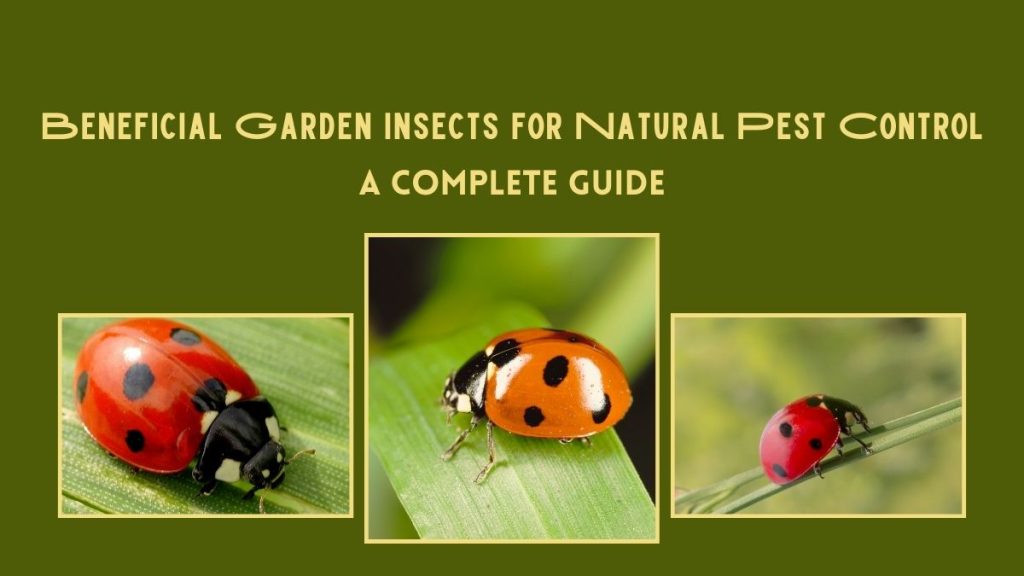
Related Article: A Comprehensive Guide to Garden Pest Control Makes Garden Beautiful
You may also read: There are No Gardening Mistakes, Only Experiments: Grow Boldly!
Insects: The Garden’s Tiny Helpers
Think of a garden, and buzzing bees or fluttering butterflies might come to mind. But beyond these well-known pollinators, a host of beneficial insects play critical roles. These tiny helpers are essential for a healthy, thriving garden ecosystem. They fend off pests, pollinate plants, and break down organic matter, keeping our gardens in balance.
Roles They Play
Beneficial insects are the unsung heroes of the horticultural world. Each species serves a purpose that is vital to garden health. Here are some key roles they fulfill:
- Pest Predators: They keep harmful insects in check.
- Pollinators: Many plants rely on them for fruit and seed production.
- Decomposers: They break down dead plants and animals into soil nutrients.
Recognizing Beneficial Species
Recognizing these allies is the first step in supporting them. Here are a few species to welcome in your garden:
| Common Name | Role | Description |
| Ladybugs | Predator | Feed on aphids and other soft-bodied pests. |
| Praying Mantises | Predator | Consume larger insects like grasshoppers. |
| Ground Beetles | Predator | Hunt soil-dwelling pests like slugs. |
| Green Lacewings | Predator | Their larvae are voracious pest eaters. |
| Bees | Pollinator | Critical for cross-pollination among flowering plants. |
Welcoming these tiny helpers into your garden is not just about recognizing them, but also about creating a habitat that supports their life cycles. This includes planting a variety of flowers, providing water sources, and avoiding pesticides. Embrace these natural allies, and your garden will flourish as a result.
Related Article: The Ultimate Guide to Organic Gardening

Credit: gardentherapy.ca
Related Article: The Art of Chaos Gardening: A Unique Approach Gardening
Predators In Disguise
Insects can be both friends and foes in your garden. Some unwanted pests can destroy your plants. But hidden heroes help keep these invaders in check. These heroes are predators in disguise. They blend into the greenery, feasting on pests. Let’s meet some of these beneficial insects and learn how they help our gardens thrive.
Ladybugs And Their Voracious Appetites
Ladybugs are not just pretty red beetles with black spots. They are hungry predators. One ladybug can eat up to 5,000 aphids in its lifetime. They also enjoy other pests, like mites and scales. Gardens love ladybugs because they eat so much. Here’s what ladybugs do:
- Eat many pests like aphids, mites, and scales
- Help plants grow by keeping pests away
- Are easy to attract with certain plants like dill, fennel, and yarrow
Green Lacewings: Nature’s Pest Control
Green lacewings are another garden ally. They might look delicate, but their larvae are fierce. These “aphid lions” are hungry for pests. A single larva can devour over 200 pests or pest eggs a week. Green lacewings are good for gardens:
- Their larvae reduce aphid populations
- They eat other soft-bodied pests, like whiteflies and caterpillars
- Attracting them is easy with flowers and herbs
Pollinators: The Lifeline Of The Garden
Imagine a garden buzzing with life. Flowers burst with vibrant colors, and fruits hang heavy on the branches. This abundance is thanks to pollinators. They are essential for plants to reproduce. They move pollen from one flower to the next. This act fertilizes plants, allowing them to create seeds. Let’s explore the key players in this process.
Bees As Pollination Champions
Bees are superhero pollinators. They have special hairs that pick up pollen. Every time they visit a flower, they leave with more than just nectar. Flowers count on bees to spread their pollen far and wide. Here’s what makes bees incredible:
- Hairy bodies collect and transfer pollen efficiently
- Variety of species, each with unique pollinating habits
- Faithful to one flower type, helping plants get the right pollen
Without bees, our gardens would struggle. They ensure fruits, nuts, and berries thrive.
Butterflies: Adding Beauty And Function
Butterflies are more than just a pretty sight. They are pollinators, too. With their fluttering wings, they bring grace to any garden. Their work is important:
- Long, slender proboscises reach deep into flowers
- Help with plant diversity by spreading pollen over large areas
- Attract other beneficial insects with their bright colors
Butterflies pollinate as they search for nectar. Each visit supports the garden ecosystem. As they move from flower to flower, they keep the cycle of life going.
Related Article: Best Gardening Tips for Beginners: Cultivate Your Green Thumb
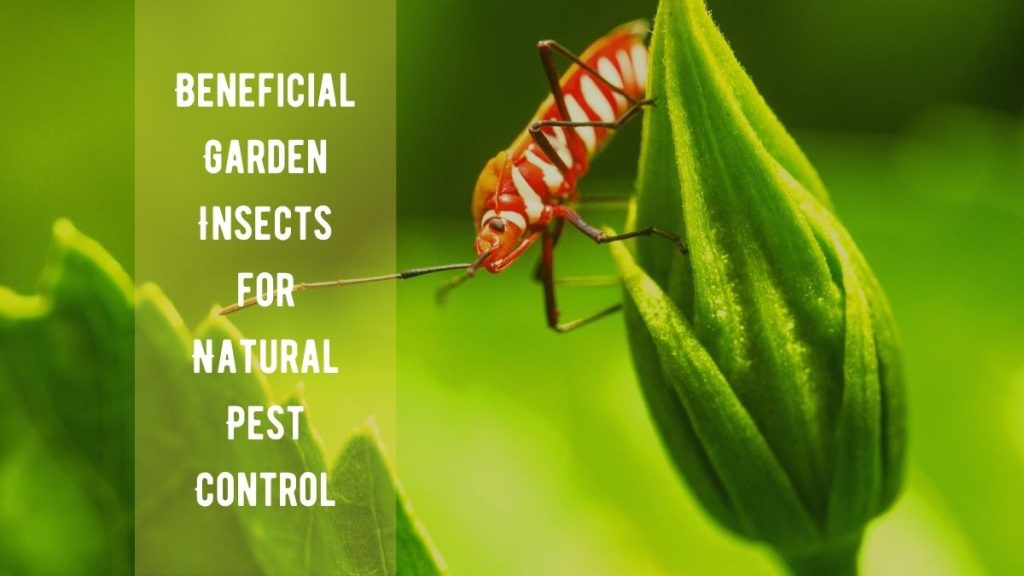
Related Article: The 14 Best Tips For Designing A Small Garden
Soil Stewards: Earthworms And Other Allies
Within every garden’s soil, an army of beneficial insects and creatures tirelessly toil. These ‘Soil Stewards’ not only maintain the health of our gardens but also support extensive ecosystems. Let’s delve into the remarkable world of earthworms and their allies who play pivotal roles in nourishing and protecting our plants.
Earthworms: The Underground Workforce
Earthworms are nature’s master cultivators. As they move through the soil, they create tunnels that help draw in oxygen and water, crucial for root growth. Their digestion process releases nutrient-rich castings, a top-grade natural fertilizer that greatly enhances soil fertility. Here are key points about these industrious creatures:
- Aerate the soil: Their tunnels allow roots to breathe.
- Enhance soil structure: The castings improve soil texture.
- Promote decomposition: They break down organic matter.
- Boost plant growth: Their work makes it easier for plants to absorb nutrients.
Beetles And Their Role In Decomposition
In the bustling soil habitat, beetles are crucial players in breaking down dead plants and animals. This process returns vital nutrients to the earth, fostering a continuous cycle of growth and decay. Beetles come in various types, each serving a unique function:
| Type of Beetle | Function in Decomposition |
| Ground Beetles | They eat a variety of pests and organic matter. |
| Dung Beetles | They specialize in breaking down animal waste. |
| Rove Beetles | These scavengers clean up fungi and decaying matter. |
| Carrion Beetles | They decompose dead animals, preventing disease. |
With a keen understanding of these soil stewards, gardeners can foster an ecosystem that naturally maintains plant health. Embracing the harmony of these insects leads to a thriving, self-sustaining garden.
Related Article: The Top 10 Best Pruning Saws for Gardeners

Credit: westerngardens.com
Related Article: How to Start a Lawn Care Business With No Money
Encouraging Beneficial Insects To Thrive
Gardens teem with life and not all insects are foes to your flowers and vegetables! Beneficial bugs battle unwanted pests and pollinate plants. Knowing how to make these allies flourish is key to a vibrant, healthy garden. Let’s dive into how to foster their existence in your backyard.
Creating Insect-friendly Habitats
To draw friendly insects, consider their housing needs. Diverse landscapes with flower varieties provide nectar and pollen. Here’s how:
- Plant native flowers—they’re best for local insects.
- Include blooming plants for different seasons to offer year-round food sources.
- Keep some areas wild to imitate natural habitats with logs and leaves.
- Install insect hotels as shelters for solitary bees and other insects.
Avoiding Chemical Warfare: Natural Pest Management
Chemicals can harm beneficial insects. Natural pest management preserves these helpers. Strategies to consider:
- Use organic methods like hand-picking pests off plants.
- Introduce predators like ladybugs to eat aphids.
- Encourage birds in your garden—they’re natural pest controllers!
- Grow plants like marigolds that repel harmful insects naturally.
Adopting these practices helps beneficial insects thrive. Your garden becomes a sanctuary for helpers like pollinating bees and pest-eating ladybugs.

Credit: www.grit.com
Frequently Asked Questions For Beneficial Garden Insects
What Are Beneficial Garden Insects?
Beneficial garden insects are natural predators that help control pests. They pollinate plants and contribute to a balanced ecosystem. Examples include ladybugs, lacewings, and bees.
How Do Beneficial Insects Help Gardens?
Beneficial insects prey on harmful pests, reducing the need for chemical pesticides. They promote healthier plant growth and maintain ecological balance within garden environments.
Can Beneficial Insects Improve Plant Health?
Yes, beneficial insects can significantly improve plant health. They control pest populations and aid in pollination, resulting in stronger, more resilient plants and better crop yields.
What Attracts Beneficial Insects To Gardens?
Plants with nectar-rich flowers attract beneficial insects. Providing a variety of plants that bloom at different times ensures a consistent food supply for these helpful creatures.
Related Article: The Ultimate Guide to Garden Tool Organization: Maximize Efficiency
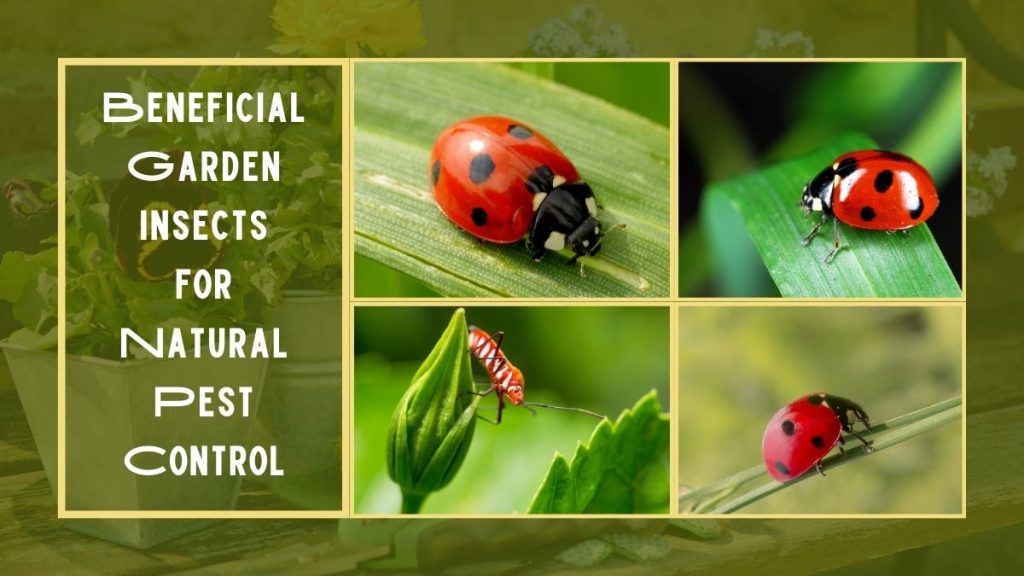
Related Article: The 11 Best Gardening Tool Sets of Recent Times
To know more about Beneficial Insects for Natural Pest Control>>
Conclusion
As we embrace the world of garden biodiversity, it’s clear that beneficial insects are unsung heroes. These tiny allies, from pollinators to predators, play critical roles in maintaining healthy ecosystems. By encouraging their presence, gardeners can ensure thriving plant life and natural pest control.
Let’s support these vital insects and cultivate gardens that buzz with life and vitality.
Related Article: The 9 Best Garden Tool Organizers of Recent Times
You may also read: Unveiling the Beauty of a Hidden Garden
- Indoor Plant Care Tips for Enthusiasts: Lush Oasis Secrets - July 6, 2024
- The Best Electric Garden Tools: Maximize Your Green Thumb! - June 23, 2024
- Exploring the Diversity of Rock Garden Plants for Unique Gardens - June 10, 2024

